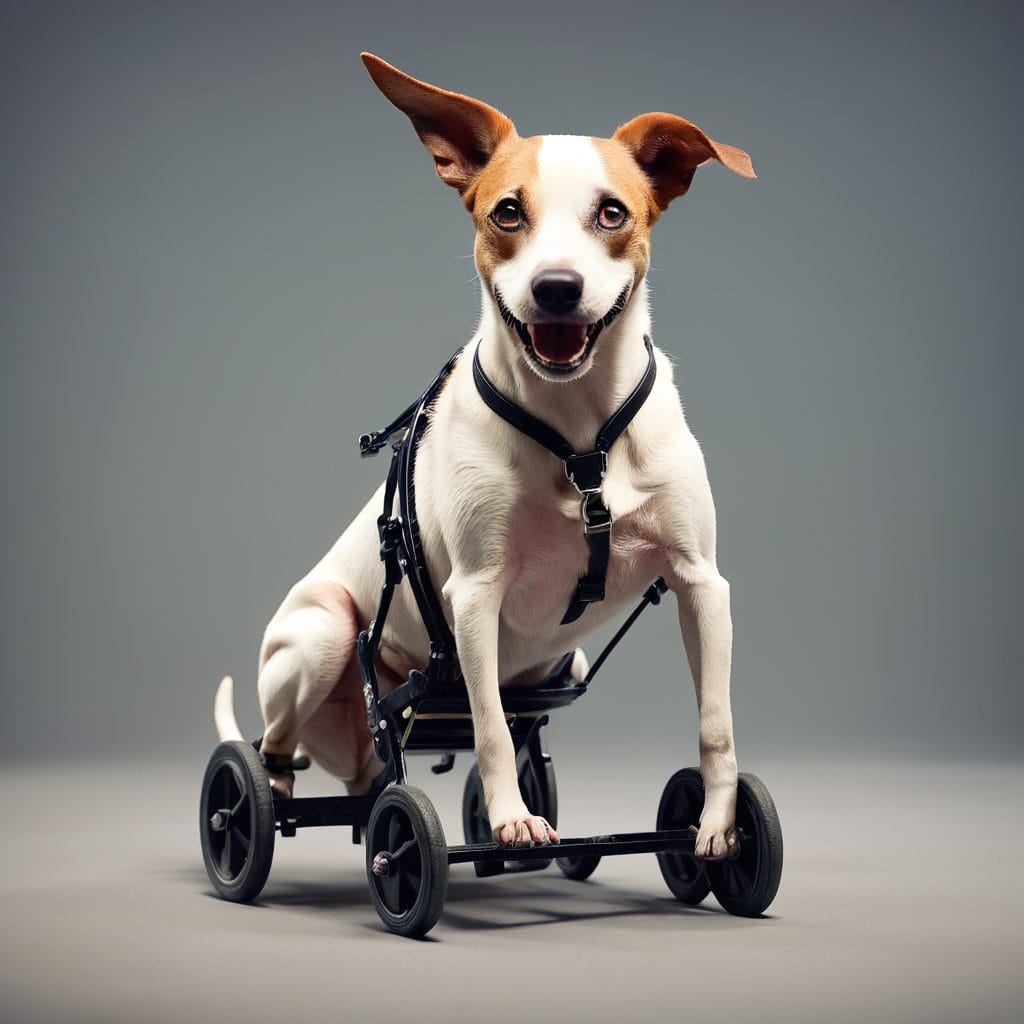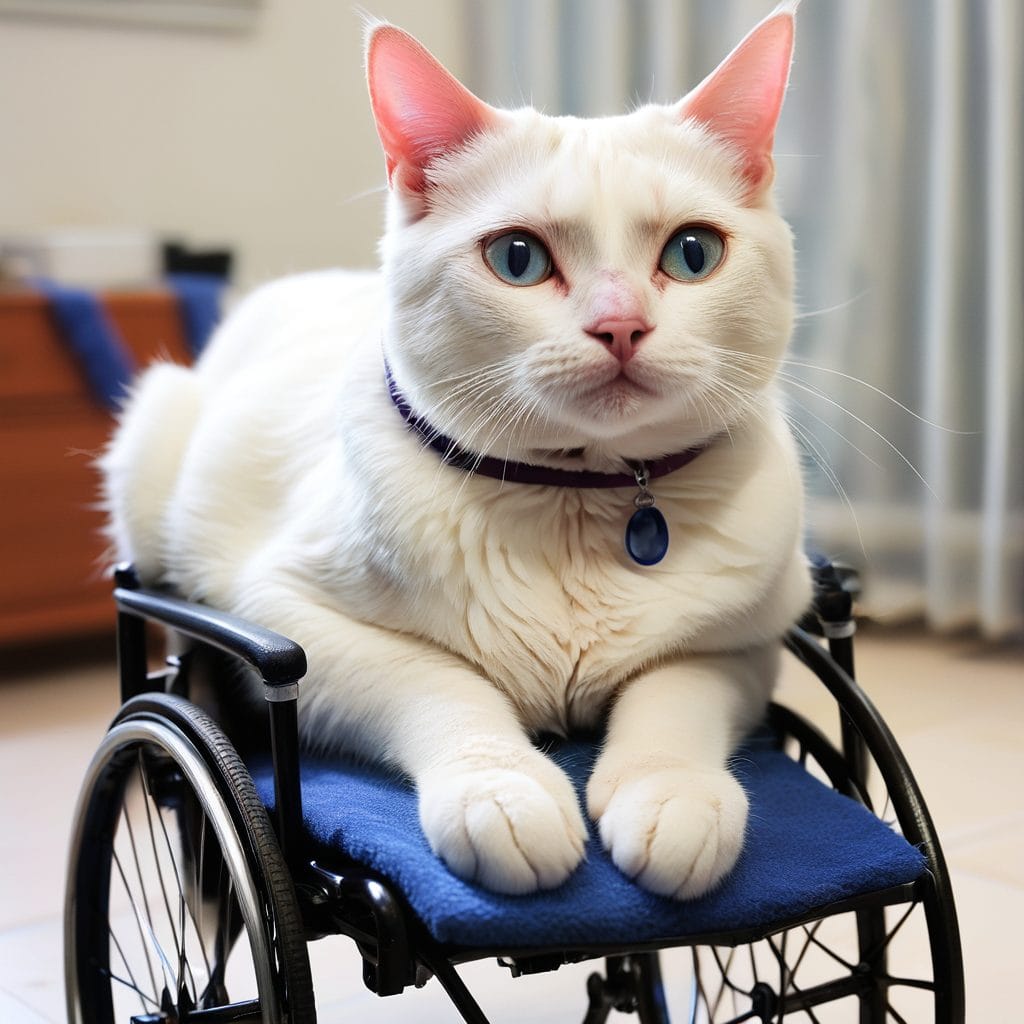
On May 3rd, 2024, we celebrate National Specially-Abled Pets Day! It’s a day to encourage folks to adopt and care for pets with special needs, like disabilities.
Pet owners share their stories about loving and supporting these amazing animals.
It used to be called Disabled Pets Day, and it helps spread awareness about how to care for pets with disabilities.
These pets might need a little extra help, but they bring tons of happiness into our lives!
History of National Specially-Abled Pets Day
National Specially-Abled Pets Day began as a way to encourage people to think about adopting pets with special needs, like disabilities.
These animals face tough challenges, and in the wild, they often struggle to survive with broken limbs or impaired vision.
But by welcoming them into our homes, we can give them a chance at a happy life.
The day also honours the caregivers who look after specially-abled pets. Colleen Paige established this day in 2006 to recognize their dedication.
Taking care of these pets isn’t easy, but it’s incredibly rewarding.
Every person’s experience with a specially-abled pet is different. By caring for them, we learn about the unique challenges they face and how to meet their needs.
Disabilities in pets can come from various reasons, like old age, illnesses, or injuries. But with love and attention, they can still enjoy life to the fullest.
Sadly, these pets often struggle to find homes because of their disabilities. But by considering adoption, we can provide them with the love and care they deserve.
On this day, we aim to raise awareness about the joy and companionship these pets bring, regardless of their physical limitations.
So, if you’re thinking about bringing a pet into your home, consider giving a specially-abled pet a chance—they might just change your life for the better.
4 Ways to Support National Specially-Abled Pets Day

Here are four ways you can help pets with special needs even if you can’t adopt them right now:
Foster a Pet with Special Needs
If adopting isn’t feasible for you at the moment, consider fostering instead.
Specially-abled pets often thrive better in homes than in shelters and fostering helps them show their true personalities to potential adopters.
It’s also ideal for pets needing a calm environment for recovery after surgery or for behavioural reasons.
Raise Awareness
Spread the word about specially-abled pets in need of homes.
Sharing their profiles on social media, following and sharing content from rescue organizations, and sharing your own story if you have a specially-abled pet can make a big difference.
Increased visibility can lead to quicker adoptions and happier endings for these animals.
Volunteer at Your Local Shelter or Rescue Organization
Donating your time can be as valuable as donating money. Many shelters rely on volunteers, especially for the extra care and attention that specially-abled pets may require.
From walking dogs to assisting with socialization, there are many ways to get involved and make a difference.
Donate to Rescue Organizations
Monetary donations are always appreciated by rescue organizations, especially those that focus on specially-abled pets.
These animals often need costly medical treatments and special supplies, and your donation can help cover these expenses and ensure they receive the care they need.
No matter which way you choose to support them, your efforts can make a significant impact on the lives of specially-abled pets and the organizations that care for them.
Conclusion

If you’re considering bringing a pet into your home, why not think about adopting a specially-abled pet?
These animals may have some extra needs, but they can bring immense joy and companionship into your life.
If adoption isn’t an option for you right now, you can still make a difference by learning about fostering specially-abled pets.
Fostering provides a temporary home for these animals while they wait for their forever families.
It’s a rewarding experience that can make a big difference in an animal’s life.
Frequently Asked Questions
Many paralyzed or partially paralyzed dogs can lead happy and comfortable lives. They often still enjoy playing, remain alert and excited around their loved ones, and maintain a healthy appetite.
Spending time with domestic animals has been proven to reduce symptoms of anxiety, depression, fatigue, and pain in people.
Yes, pets can experience mental health issues. Common ones include anxiety, depression, and compulsive behaviors.
The companionship of a pet can alleviate anxiety and boost self-confidence. Pets provide non-judgmental support, offer unconditional love, and are excellent listeners.
Dogs’ emotions typically don’t fluctuate dramatically like in bipolar disorder. Instead, their mood changes are often triggered by external factors, according to experts.
- Best Shampoo for Sensitive Skin Dog Grooming: 2026 Guide - February 12, 2026
- 40+ Aesthetic Names for White Dogs (2026 Unique & Rare List) - February 6, 2026
- 50+ Cool Snake Names for 2026: Expert-Picked & Rare Ideas - January 29, 2026


GIPHY App Key not set. Please check settings